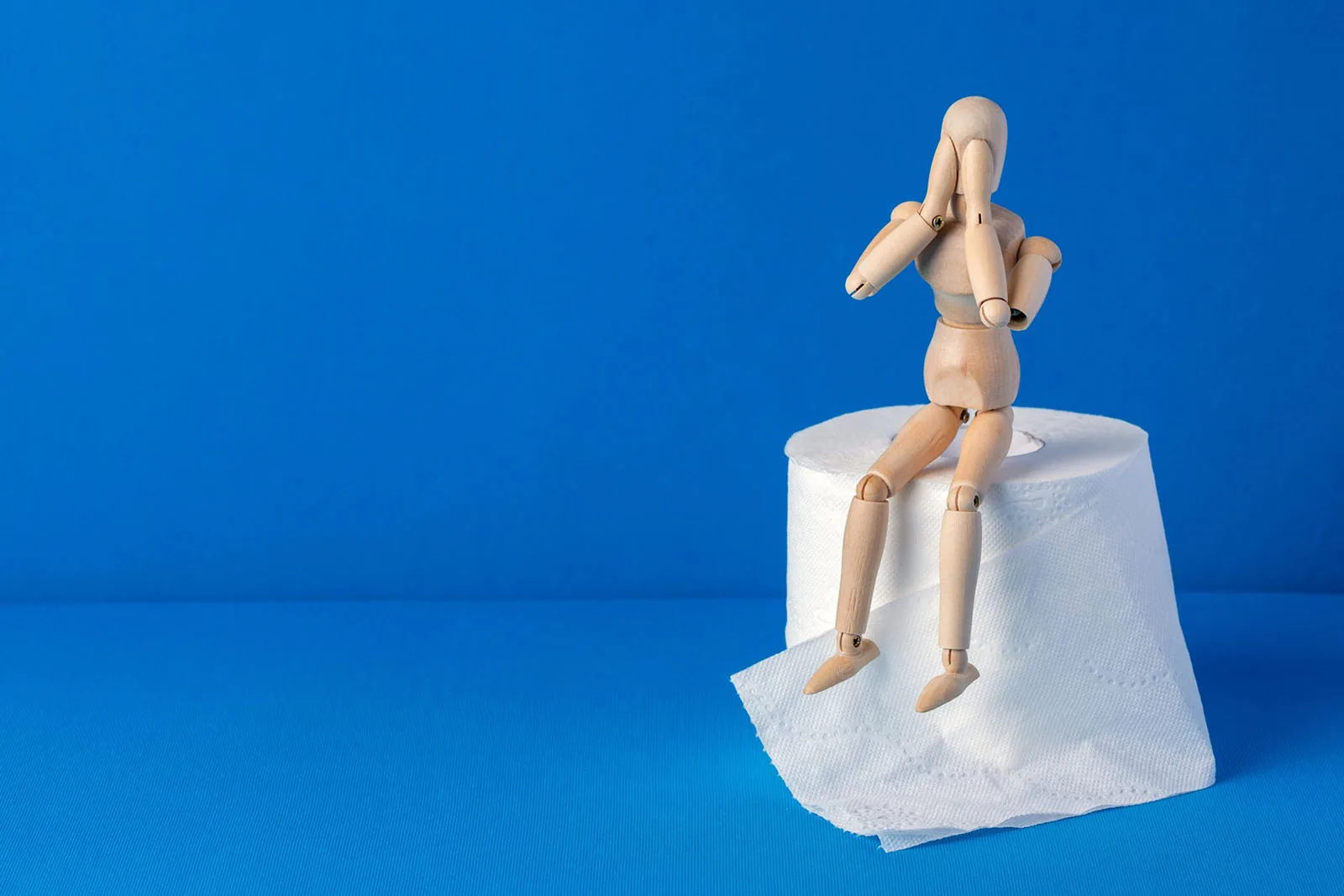If you are wondering the answer to this question, you are not alone. There are millions of people out there experiencing gut symptoms and wondering if they should be worried about them.
The most common IBS symptoms are:
- Abdominal pain
- Bloating and/or distention of the belly
- Constipation
- Diarrhea
The way IBS is diagnosed, in order for your symptoms to “qualify” as IBS, abdominal pain must be present. It can be crampy, aching, and even quite severe. Often it is triggered or made worse by food, bowel movements and stress.

This abdominal pain is also often associated with a change in stool frequency or consistency. It typically gets better after having a bowel movement, and it would actually be concerning if it didn’t. Since abdominal pain in IBS is considered visceral pain, you’ll often feel pain in the midline of the body.
Bloating is a feeling of tightness and fullness of the abdomen, and your belly feels like it is visibly bigger, even though it may or may not be so. Distention is the term for your belly protruding more than usual with measurable increase in the abdominal circumference. People feel like they have a balloon in their belly, or that they are pregnant when they are not pregnant. Bloating and distention can cause discomfort and it may feel embarrassing.
Constipation is an infrequent bowel movement pattern, in which you have a bowel movement less than three times a week. Though it seems to me you can feel constipated even if you move your bowels daily. Constipation usually goes hand in hand with small, hard, pebble-like stools and they are hard to pass. You might feel like your bowels are not emptying fully.
Diarrhea is the opposite of constipation. It refers to loose, watery stools, more than three times per day. Diarrhea could also cause urgency - you can’t wait a minute longer to go to the bathroom or else an accident might happen.

These symptoms can be very debilitating. They might also change from day to day, one day having constipation and the next diarrhea. People experiencing IBS symptoms may feel like they need to watch closely what they eat, not stray too far from the toilet, and avoid going out to see friends, travel or eat out.
If you’ve been experiencing IBS symptoms for longer than a few weeks, or less if the symptoms are very difficult, I encourage you to go get them checked out. Then, even if your symptoms didn’t fulfill the IBS diagnostic criteria, you’d find out whether there’s something more serious going on, or whether there’s nothing to worry about. Either way, it’s better to be in the know than to be guessing!
If you have been diagnosed with IBS, but are not sure whether this is the right diagnosis, I would again encourage you to speak with your doctor. Ask how they diagnosed the disorder and voice your concerns. The end result (should be) that your doctor will either order more tests, or explain to you more thoroughly their thinking process, so that you can rest assured the right call has been made and that you can begin to apply the right therapies.
If you end up being diagnosed with IBS, or even if you’re not, I have what you need to improve your symptoms. Sign up to my IBSwise program, or if you’d like a more individualized approach, book a free 30-minute chat to discuss your next move.
Whatever you do, don’t be left alone with your symptoms! There is so much you can do to ease them.
Love,
Anna-Kaisa


